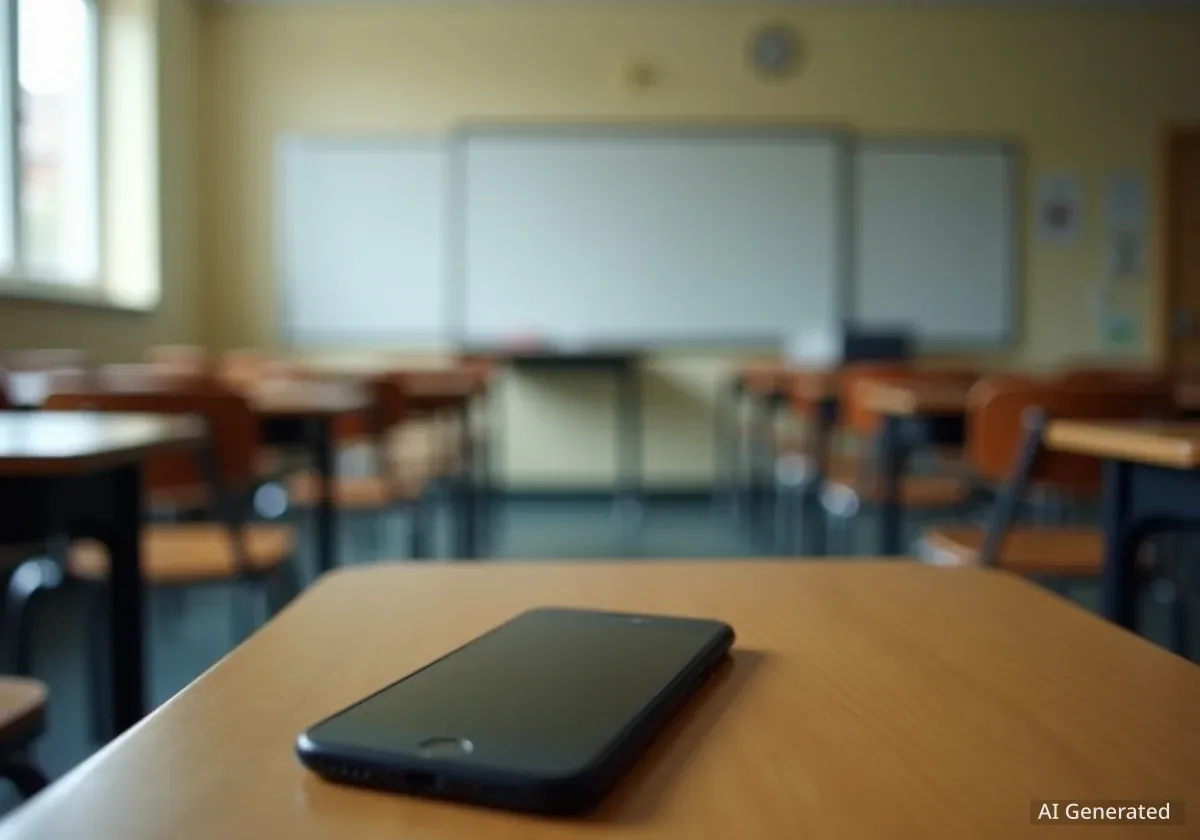Durham Public Schools is considering significant changes to its student cellphone policy, which would require middle and high school students to completely power off their devices during school hours. The proposed revisions are a direct response to a new state law aimed at reducing classroom distractions.
The district's board is set to review the new policy, which moves beyond the current rule of simply silencing phones. This initiative places Durham among several North Carolina school systems updating their rules to comply with recent state legislation.
Key Takeaways
- Durham Public Schools proposes that students must power off cellphones, not just set them to silent mode.
- The policy change is driven by the new state law, House Bill 959, which mandates stricter rules on personal communication devices in schools.
- New rules for smart glasses are also being considered, with options to ban them or allow them only with technology disabled.
- Nearby Wake County Public Schools is also revising its policy to align with the state law and clarify rules on personal laptops.
Details of the Proposed Policy in Durham
School leaders in Durham are evaluating a more restrictive approach to personal electronic devices in the classroom. The primary change would be the mandate for middle and high school students to turn their cellphones completely off throughout the school day.
This marks a significant shift from the existing policy, which permits devices to be kept on silent mode. The goal is to eliminate potential disruptions and temptations associated with notifications and device use.
The proposal also addresses emerging technology, specifically smart glasses. The board is weighing two distinct options:
- A complete prohibition of smart glasses on school grounds.
- Allowing them only as prescription eyewear, with all technological features, such as cameras and connectivity, turned off.
This forward-looking part of the policy aims to get ahead of future technological distractions before they become widespread in schools.
Why the Change? Understanding House Bill 959
The push for these new rules comes from state-level legislation. This summer, North Carolina lawmakers passed House Bill 959, which requires all public school boards across the state to adopt and enforce policies that restrict the use of cellphones and other wireless communication devices during school hours. The law also requires districts to establish clear consequences for violations.
A Regional Trend Emerges
Durham is not alone in re-evaluating its device policies. Wake County Public Schools, a neighboring district, is also in the process of updating its rules to comply with the new state mandate. Wake County's current policy allows phones on silent, similar to Durham's old rule.
In addition to cellphone restrictions, Wake school leaders are seeking to clear up confusion regarding other personal devices. They are considering an amendment that explicitly permits students to bring personal laptops to school, provided they are used for instructional purposes only. This clarification was needed after some parents and students believed the policy banned personal laptops entirely.
The Wake County school board is expected to finalize and approve its revised policies by the end of the year, signaling a broader regional shift toward more uniform and stringent device management in schools.
The National Conversation on Phones in Schools
The actions in Durham and Wake County mirror a national movement addressing concerns about the impact of technology on young people. Educators and child development experts have increasingly pointed to device addiction and constant digital distractions as significant barriers to learning and social development.
Schools across the country are grappling with how to manage devices that are deeply integrated into students' lives. The debate centers on balancing the potential benefits of technology with the need for a focused learning environment.
Research on Cellphone Bans Shows Mixed Results
Studies on the effectiveness of strict cellphone policies have yielded varied outcomes. One recent study found that schools implementing strict bans saw modest academic gains after two years. However, the same study noted that the strictest policies were also correlated with a higher number of student suspensions, suggesting potential challenges with enforcement and student compliance.
As districts like Durham move forward, they will be navigating this complex landscape. The success of the new policies will depend not just on the rules themselves, but also on consistent enforcement and clear communication with students and families about the reasons behind the changes.





